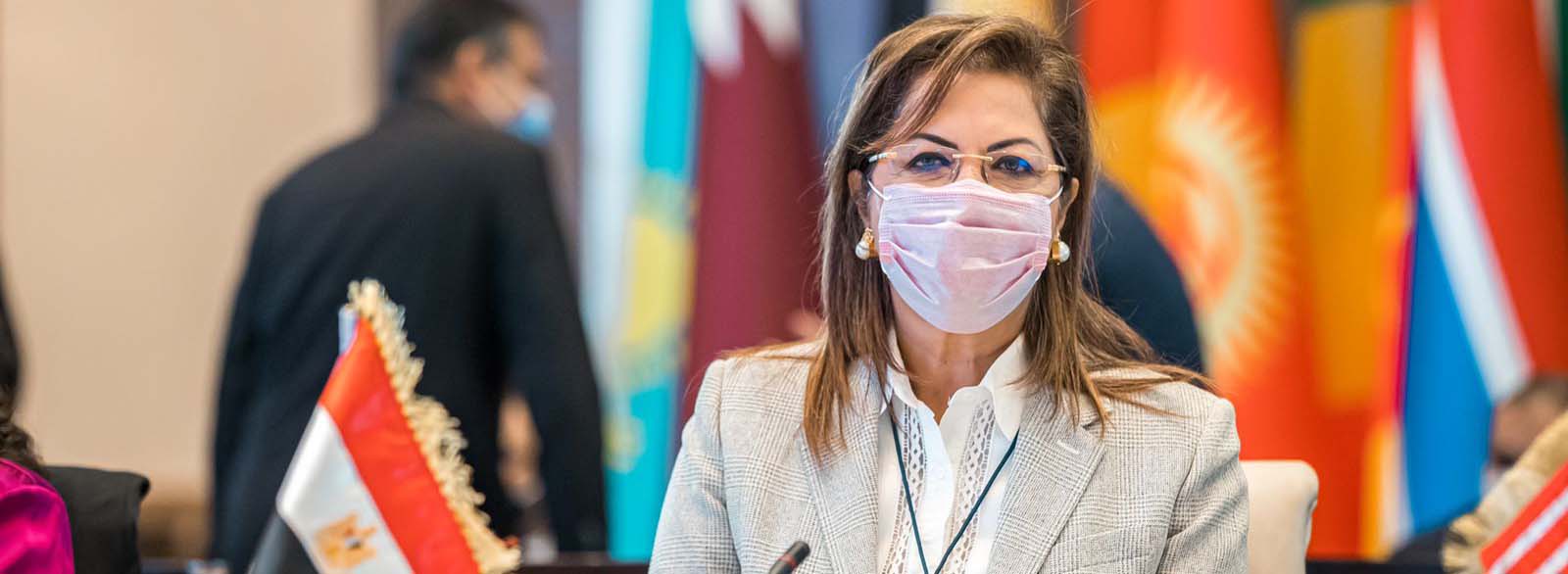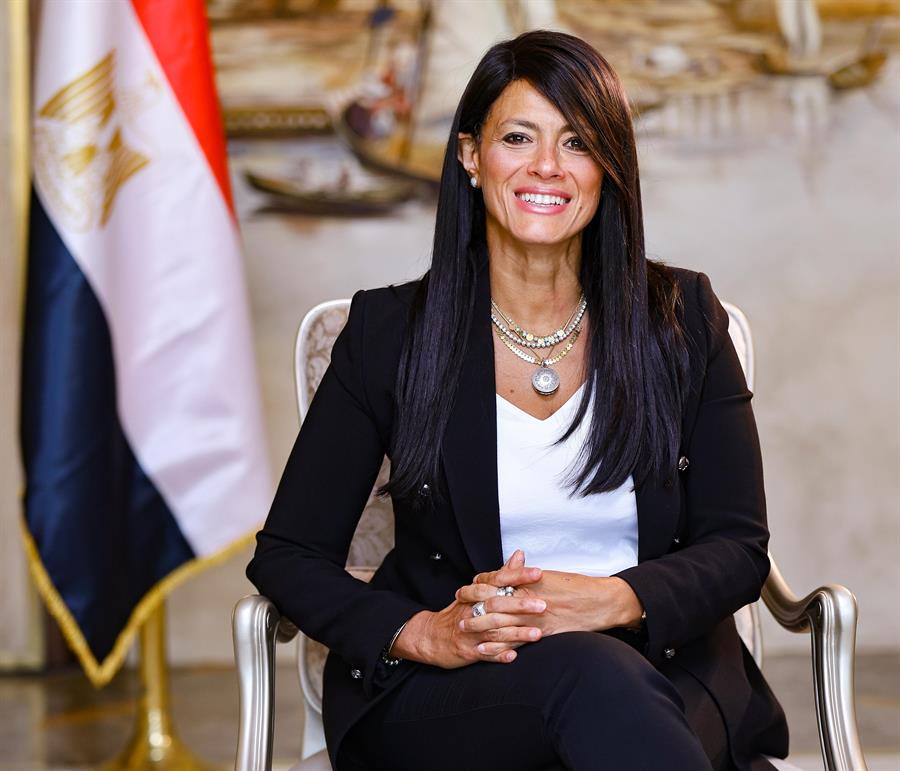Egypt’s Minister of Planning and Economic Development participates in the Round Table of Governors of IsDB

04 September 2021
Dr. Hala El-Said, Minister of Planning and Economic Development and Governor of Egypt at the Islamic Development Bank Group, participated on Saturday in the Governors Round Table meeting, which was held on the sidelines of the forty-sixth annual meeting of the Board of Governors of the Islamic Development Bank held in Tashkent, the Republic of Uzbekistan.
During her speech, El-Said stressed that one of the main factors for the success of the Egyptian experience in dealing with the Covid-19 pandemic - which made it praised by many international institutions - is the rapid movement of the state by taking proactive policies that depended on a clear and deliberate plan that preserves the balance between preserving the health of the citizen and the continuation of production.
These measures included the state providing a stimulus financial package that exceeded 2% of the GDP (EGP 100 billion).
The state’s measures targeted all affected groups and sectors to mitigate the effects of the pandemic, including the implementation of monetary and financial incentive policies to support these groups and sectors.
Moreover, the reform efforts implemented by the Egyptian state in the last seven years have enhanced its resilience.
These state‘s intervention made Egypt one of the few countries that maintained a positive growth rate during the Corona pandemic crisis.
El-Said pointed out that the state has implemented a large number of development initiatives with a social and economic impact, including the “Decent Life” initiative, which is a purely Egyptian experience and is considered the largest development initiative in the history of Egypt and the world, benefiting from the initiative (4,670 villages accommodating about 56 million citizens, including more than half of the population).
The initiative receives financial allocations of up to $ 52 billion (EGP 800 billion). In a culmination of the success of this initiative, it has been included by the United Nations within the “SDGs Good Practices” international best practices.
El-Said explained that the Bank Group can play an important role in implementing the national development plans of member countries, which contributes to promoting job creation for young people through the expansion of funds directed to the small, medium, and micro enterprises sector, according to financial conditions appropriate to the nature of these projects.
The Bank Group can also play an important role in stimulating entrepreneurship and spreading a culture of self-employment among young people and maximizing the benefit of the “Transformation” fund launched by the Bank to institutionalize its efforts to support science, innovation, and entrepreneurship initiatives with a capital of $500 million.
Regarding the main areas of focus of the Islamic Development Bank in promoting green economic growth, El-Said stressed that there are many interventions that the Bank can contribute to strengthening the efforts of countries to advance green growth.
El-Said added that Egypt attaches great importance to green economic growth, as the Egyptian state (in cooperation with the Ministries of Planning and Economic Development and the Environment) prepared the first guide to environmental sustainability criteria in the sustainable development plan, under the name of the Strategic Framework for Green Recovery, intending to provide indicative criteria for integrating sustainable development criteria.
The state aims to double the percentage of green public investments from 15% in 20/2021 to 30% in the 21/2022 plan, to become 50% by the end of 2024/2025.
In this context, the state gives priority to financing green investment initiatives and projects, including the expansion of the subway network, water desalination projects, and new and renewable energy projects.
Egypt has the largest solar power plant in the world, which is the "Benban" plant in Aswan. Egypt also has one of the largest plants to produce electricity from wind energy in Jabal El-Zeit.
All of this comes within the framework of the government's vision and directions for green recovery, and for Egypt to have a lead in the Middle East in the field of greening the state's plan, and work is underway to circulate this guide to include private sector investments.
Also, through cooperation between the Ministries of Finance and Planning and Economic Development, Egypt launched green bonds in September 2020, worth $750 million, to provide financing for green projects, making it one of the leading countries in this field in the Middle East and Africa.
A "National Hydrogen Strategy" is also being prepared to explore opportunities for producing, using, and transporting hydrogen as an energy source, especially blue and green hydrogen. All of these projects and sectors enhance green economic growth opportunities that the Bank Group can prioritize in its financing.
El-Said concluded her speech by highlighting the support required from the Islamic Development Bank to stimulate the Islamic finance industry in the member countries to mobilize additional resources for development.
El-Said clarified that the Islamic Development Bank can play an effective role based on the accumulated experiences of member institutions in the Islamic finance industry, especially in light of the need of many member states for institutional support and capacity building and cadres necessary to stimulate and develop this financing.









